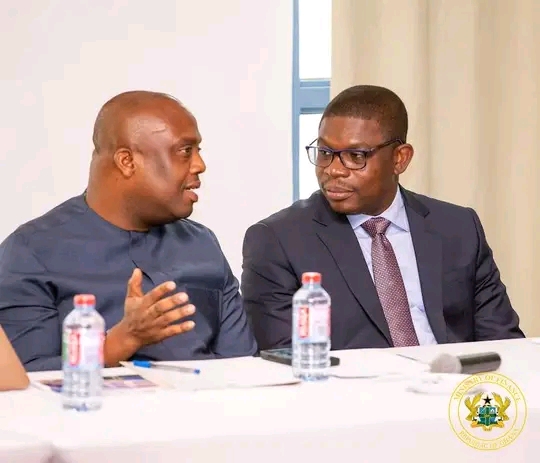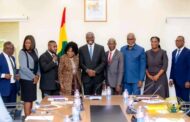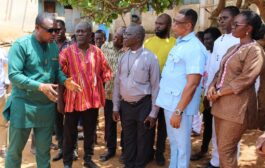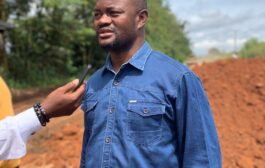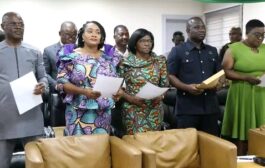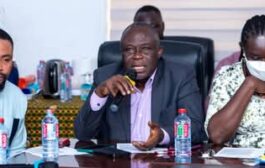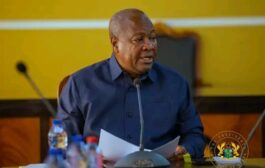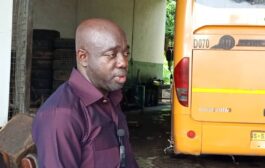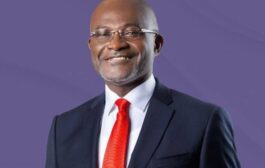The Deputy Minister for Finance, Thomas Nyarko Ampem, has emphasized that the active involvement of the private sector is essential to unlocking Ghana’s energy potential and achieving the country’s goal of universal access to electricity by 2030.
Speaking on behalf of the Minister for Finance, Cassiel Ato Forson, at the Mission 300 Ghana Compact Review Workshop, the Deputy Minister underscored the government’s commitment to fiscal discipline while pushing for innovative and sustainable financing mechanisms to drive energy access.
“Projects under Mission 300 must be financially viable and structured within the framework of Ghana’s existing international commitments,” Hon. Nyarko Ampem stated. “We are committed to designing initiatives that attract concessional finance, leverage private sector capital, and utilize innovative financing models such as blended finance and public-private partnerships.”
The workshop brought together stakeholders from the energy sector, development partners, and financial institutions to review Ghana’s progress under the National Energy Compact and chart a pragmatic path forward.
According to the Deputy Minister, the government is fully aware of the fiscal implications of expanding energy infrastructure and is determined to pursue strategies that avoid increasing the country’s contingent liabilities.
He explained that Ghana’s energy projects must be aligned with broader economic and fiscal priorities to avoid jeopardizing debt sustainability.
“Our approach must ensure that energy projects contribute positively to economic growth without imposing unsustainable financial burdens on the state,” he said.
The Mission 300 initiative aims to connect underserved communities to reliable and affordable electricity while advancing Ghana’s commitments to climate resilience and sustainable development. Central to this mission, Hon. Nyarko Ampem said, is ensuring that energy investments are bankable and attractive to investors, both domestic and international.
“We must promote private sector participation through risk-sharing frameworks that protect public finances,” he emphasized. “This is not just about investment; it’s about creating a viable ecosystem for growth that benefits our citizens while ensuring fiscal integrity.”
The Deputy Minister further outlined four key financial priorities that will guide Ghana’s strategy for the energy transition including maximizing concessional and climate finance to reduce the cost of capital; promoting private sector involvement through de-risked investment models, focusing on scalable, cost-effective renewable energy solutions and strengthening financial governance and transparency.
“These strategic pillars will form the bedrock of our financial stewardship under Mission 300,” he noted. “We must move beyond reliance on state funding and embrace the private sector as a true partner in development.”
This, he assured participants that the Ministry of Finance would continue to work closely with the Ministry of Energy and Green Transition (MoEnGT), as well as with development partners and regulatory agencies, to create an enabling environment for sustainable energy investment
“We must harmonize fiscal policies and investment incentives to build investor confidence and deliver results,” he said. “Together, we can unlock the economic potential of universal energy access while preserving Ghana’s fiscal integrity and positioning our nation for resilient growth.”
In closing, the Deputy Minister urged all stakeholders to approach the deliberations with “a commitment to pragmatic and fiscally responsible solutions,” calling the workshop a crucial step in Ghana’s journey toward a sustainable and inclusive energy economy.
The Mission 300 Ghana Compact is part of the country’s broader commitment under the United Nations’ Sustainable Energy for All (SEforALL) initiative and forms a key pillar of Ghana’s energy and climate strategy.
As the nation seeks to bridge the energy access gap, the call for deeper private sector collaboration signals a new chapter in Ghana’s energy transition agenda.
Source:Mybrytfmonline.com/Kwabena Nyarko Abronoma



